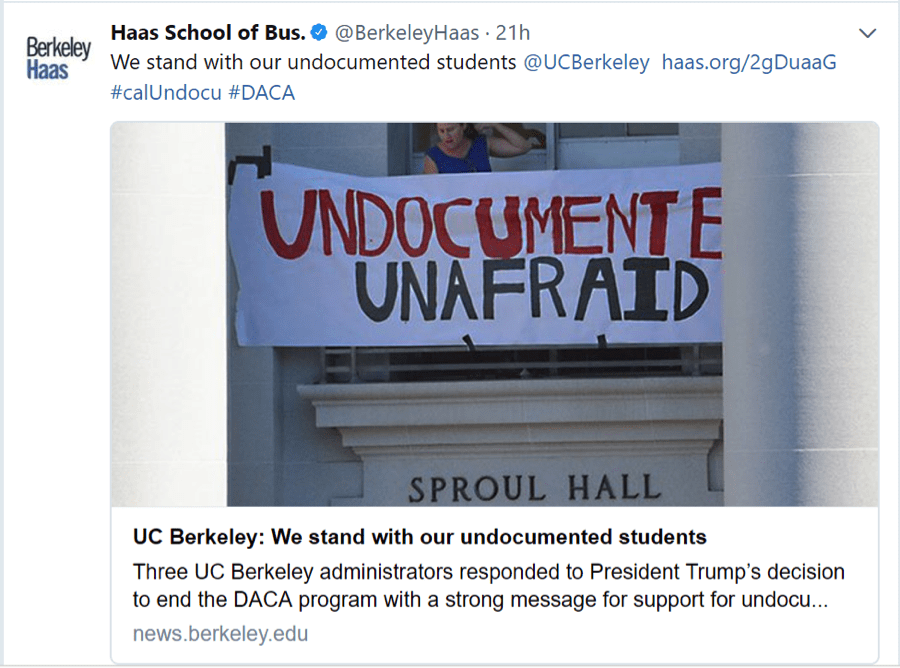Wharton Professor Barbara Kahn Examines Walmart/Google Partnership

Wharton School marketing professor Barbara Kahn shared her insight on the brand new partnership between Walmart and Google on Wharton Business Radio. Kahn was generally positive about the partnership, asserting that it was necessary for Walmart to acquire a tech platform to keep up with online competitors like Amazon.
“People feel competing against Amazon is a very tough proposition, and I want to see competition there,” Kahn said. She was optimistic about the partnership, particularly because Walmart is committed to having a multitude of items available for voice shopping with Google Assistant. According to Kahn, “The firm that owns the shopping list is the firm that has a big advantage…In the future, as the home becomes more connected and people become more used to talking to Alexa or Siri in building their shopping lists, you really need to be in that game. It’s forward thinking.”
Kahn debated with Mark A. Cohen, Director of Retail Studies at Columbia Business School, who favored a much less hopeful outcome for the partnership.
“It is a positive step, but it’s a baby step that I would say doesn’t necessarily lead anywhere,” Cohen said, “The intersection of Walmart’s customer base and Google’s users is so small that this is likely to be insignificant.” Cohen also mentioned that Google Express in itself has yet to develop a sizable customer base, so may not be particularly useful in helping Walmart compete with online platforms.
As far as increasing e-commerce sales, Walmart has been steadily improving its track record. In fact, the company posted a 60 percent growth in this area for the July-ending quarter. This trend is due to its recent purchases of online retailers like Jet.com.
Though Kahn agreed with some of Cohen’s concerns about the partnership, she held that Walmart’s prices can compete with Amazon’s, and there are a considerable number of people who are shopping using platforms like Google Assistant.
Business, University Leaders Speak Out Against DACA Repeal

When the Trump administration formally announced yesterday that it would end the Deferred Action for Childhood Arrivals program (DACA)—putting a six-month expiration date on legal protections granted to approximately 800,000 people who entered the U.S. illegally as children—universities and business leaders were quick to condemn it. Indeed, vocal defense of the “Dreamers,” as those in the DACA program are called, resounded from Silicon Valley to the Ivy League.
“Dreamers contribute to our companies and our communities just as much as you and I,” tweeted Tim Cook, CEO of Apple and an MBA graduate of Emory’s Goizueta Business School. “Apple will fight for them to be treated as equals.” In an earlier statement Cook noted that Apple employs hundreds of people covered by DACA.
Facebook CEO Mark Zuckerberg released his own statement on his personal Facebook page. “This is a sad day for our country,” he wrote. “The decision to end DACA is not just wrong. It is particularly cruel to offer young people the American Dream, encourage them to come out of the shadows and trust our government, and then punish them for it.” He added that the young people covered by DACA contribute to their communities and to the economy. “I’ve gotten to know some Dreamers over the past few years, and I’ve always been impressed by their strength and sense of purpose. They don’t deserve to live in fear.”
DACA was enacted in 2012 under former President Barack Obama by executive order, allowing individuals who were brought to the United States as children or teens before mid-2007 to apply for protection from deportation and work permits. To apply, they had to be younger than 31 at the time the program was created, have come to the U.S. before turning 16, and have lived in the U.S. for at least five years. The U.S. Citizenship and Immigration Services reports that roughly 788,000 have had their requests for DACA status accepted.
University and Business School Leaders Denounce DACA Repeal
A Center for American Progress survey of roughly 3,000 DACA recipients found that approximately 72 percent of respondents were in higher education, 13 percent of those pursuing master’s degrees. And leaders in higher education—including at several leading business schools—were every bit as vocal as major business leaders in calling out the Trump administration’s decision and pledging their support to Dreamers.
Geoffrey Garrett, dean of the University of Pennsylvania’s Wharton School, called the repeal of DACA “bad for the economy and bad for society” in a tweet that also expressed his support for an official statement issued earlier in the day by University of Pennsylvania President Amy Gutman.

Maryellen Reilly, Wharton Deputy Vice Dean for Admissions, financial aid and career management, quoted from Gutman’s statement in her own tweet: “At Penn, we are committed to providing a safe and welcoming environment for all of our students and we will do everything we can…”

Columbia University, home to Columbia Business School (CBS), issued its own statement in opposition to the repeal of DACA. “Columbia unequivocally opposes the ending of DACA and is working with others in higher education to urge Congress and federal officials to reinstate DACA’s protections and protect the rights of those with DACA status during and after the ‘wind-down’ process that has been announced,” it read. It went on to add that in keeping with Provost John Henry Coatsworth’s November pledge, “our policies and plans aim to ensure that students who had DACA coverage are able to proceed unimpeded with their studies and that all students in the community feel safe and understand beyond question that Columbia’s dedication to inclusion and diversity, including of undocumented students, is and will remain unwavering.” CBS quickly retweeted its parent university’s stance and linked to the full statement.
And the Haas School of Business at the University of California at Berkeley tweeted: “We stand with our undocumented students.” That tweet linked to a statement issued by three ranking university administrators—Chancellor Carol Christ, Vice Chancellor for Equity & Inclusion Oscar, and Undocumented Student Program Director Meng So—that called on the Berkeley community to stand with undocumented scholars at the university and beyond.

“At a time when our campus and community values are being challenged by the prevailing national rhetoric and policy making, we must deepen our resolve and commitment to our principles and to each other,” read the Berkeley administrators’ statement. “During these difficult moments, we must defend strongly held values of dignity, diversity and community.”
The Kelley School of Business at Indiana University at Bloomington, for its part, retweeted its parent university’s official statement and pledge to support all its students.

In the statement, IU President Michael A. McRobbie called out the decision to end DACA “especially in light of the administration’s prior statements expressing support for young people protected by DACA and the strong bipartisan support that exists nationwide for maintaining the program.”
McRobbie went on to underscore the university’s support of all its students. “We believe that all of our students, regardless of their background or country of origin, bring to our campuses unique perspectives and experiences that enrich our living and learning communities,” he wrote. “In doing so, they reflect who we are—and what we strive to be—as a university that provides all students with the opportunity to expand their knowledge and succeed in a place where they feel valued, respected and at home.”
In fact, IU features an entire website—DACA @ IU—dedicated to helping DACA students at the university. On the website, the university states that though bound by state and federal laws, it will take steps to support all IU students regardless of documentation and will only inquire into a person’s immigration status when required by law. IU also provides counseling and support to students who have immigration-related concerns, including connecting students with available resources for educational and living expenses.
Penn, Columbia, Berkeley, and IU are just a few of countless schools that spoke out against the Trump administration’s decision. Prior to the final decision to end DACA, 600 college and university presidents signed a statement promoting DACA back in November. Even more recently, Duke University’s President Vincent E. Price wrote a letter in support of the program, and University of Michigan President Mark Schlissel made a statement as part of the university’s September 1st convocation saying, “I would like to reiterate to all of our students, from our own state, elsewhere around the country, and from all around the world, that you are welcome here … You make us a stronger university and enrich our community and nation by your many talents, hard work, and the diverse perspectives and life experiences you bring to campus.”
As information continues to be provided by the Trump administration, many universities and schools are preparing to provide up-to-date information for their DACA students and all who are affected. Check in with your school for more information.
This article has been edited and republished with permissions from Clear Admit.
Researchers at Columbia Business School Address MBA Gender Gap

Over the last few years, top business schools across the world have worked toward gender parity in their MBA programs—with considerable progress. Many MBA programs now admit more than 30 percent women, and a growing number of leading schools top the 40-percent mark. But amid these strides, another problem has emerged: an academic performance gap between male and female students. Recently, researchers at Columbia Business School (CBS) dug into the gender performance gap issue to understand why it happens and how to fix it.
After completing multiple empirical studies, including a survey of MBA students and a review of performance data, the researchers found that both students’ background and their behavior in class have the biggest impact on the gender performance gap. Further, the researchers found that the performance difference was most evident in technically focused classes, such as accounting and finance, and less so in socially oriented courses, such as leadership and marketing.
According to Michael Morris, CBS Leadership Professor and one of the study’s authors, the findings shed “new light” on the gender performance gap at top business schools. “But more importantly, they offer business school leaders directions for policies to effectively redress the grade gap,” he continued in a press release.
The researchers found that one of the main reasons behind the performance gap in technically oriented classes was the students’ background. After examining reported interests in both admissions applications and career counseling inventories, the researchers found that female students are more inclined toward the “poet” interest profile, while male students are more inclined toward the “quant.” For top MBA programs, this means that from the first day of class, male and female students come in with different interests, aptitudes, and experiences that will need to be addressed in order to break gender norms.
Gender norms were also a problem when it came to behavior in the MBA program. Researchers found that female students were typically less assertive, which hindered their learning in technical courses.
“Our research shows that female students far too often hold back and hesitate to ask the kinds of questions that would help them better master technical concepts and procedures, perhaps because it is inconsistent with the established gender norms linking men with technical ability. This has a profound effect on their overall achievement in MBA classes,” said author Aaron Wallen, Executive Director of the Management Division at Columbia’s School of Professional Studies and a former CBS lecturer.
To truly close the gender gap does not simply mean enrolling 50 percent female students, the researchers noted. Instead, top MBA programs also need to do the following three things:
- Sponsor programs that bring in more technically oriented female candidates.
- Conduct outreach to STEM undergraduate programs.
- Reduce required work experience to enroll younger students.
They also recommended including a training program for both faculty and students to teach them the skills for eliciting and managing participation in the classroom and other work settings.
To learn more about the research study—authored by CBS Professors Wallen, Morris, and Jackson G. Lu and INSEAD Professor Beth A. Devine—click here.
This article has been edited and republished with permissions from Clear Admit.
Building a Career after Graduation: Columbia Business School

Huzzah! You made it through the b-school ringer! Now ready for the fun part? Finding a job!
Top 5 Schools for an MBA in Real Estate

The number of MBA students who pursue careers in real estate may be small, but even still, some of the most prestigious business schools in the United States offer exceptional programs that specialize in the field. Continue reading…
Metro News & Notes: The Business of Improv, Souring on Wall Street, and More

Good morning and happy Friday!
Here are a few stories you may have missed from the week that was …
How Improv Methods from Comedy Can Lift Business Performance | Knowledge@Wharton
There aren’t many part-time comedians and business school professors, but Bob Kulhan doesn’t fit the norm. An adjunct professor at both Duke University and the Columbia Business School, Kulhan is the founder and CEO of Business Improv and co-author of the new book “Yes And”: The Art of Business Improvisation. Speaking on the Knowledge@Wharton podcast about his new work, Kulhan talks about his improv-upbringing in the Chicago comedy scene and how it can be applied in a business setting.
When discussing those in business who struggle to think on the fly, Kulhan notes, “There are all sorts of biases that keep us from just communicating with people and keeping an open mind. What we look for in improvisation is a postponement in judgment and the critical thinking to another side so that we can take in and absorb the offers and opportunities that are being presented to us.”
The concept of “Yes And” (the building block of improv comedy structure), Kulhan notes, can help build individual development, which then helps build team development. “When great minds and intelligent people are sharing thoughts … the collective consciousness of the group will outweigh that of any individual,” he says.
Check out the Knowledge@Wharton podcast today.
A Record Percentage of MBAs Don’t Want to Work on Wall Street | Bloomberg
Training the Street, a New York City-based finance training firm, affirmed what many had already begun to suspect: Wall Street jobs are becoming less appealing.
The new survey data found that MBA graduates would like to work at the largest “bulge bracket banks” at the lowest rates in eight years—right after the peak of the economic recession. Scott Rostan, Founder and CEO of Training The Street, said in a release, “Banks are still a dominant hiring force for MBAs and continue to attract top talent, but working for larger, established companies off of Wall Street is becoming more attractive to MBAs as they offer a different type of lifestyle.”
Bloomberg writer Julie Verhage notes that interest in finance is not necessarily disappearing, however. “Other employment options hit record levels of preference this year,” Verhage notes. “Top choices included consulting firms at 20 percent, corporate development at a Fortune 2000 company at 13 percent and boutique banks at 12 percent.”
Find out more about the survey here.
AI Creeps Into the Work of MBA Career Advisers | Financial Times
The AI revolution may be a little less Terminator 2 (so far) than people might have expected, but it’s still changing the MBA game. In a new piece from the Financial Times, writer Jonathan Moules examines several of the world’s top business schools utilizing AI advantages for students, including Vmock, a helpful student résumé assistant created by grads from the Chicago Booth School of Business and Northwestern Kellogg School of Management.
“More than 100 higher education institutions, including 17 of the top 20 business schools on the FT MBA ranking list, pay an annual subscription for Vmock’s software,” Moules writes. The cost to use the program is a modest fee of $19.95, with over one million résumés already uploaded.
Like Vmock, much of the AI-infused technology used in business schools was “born out of a frustration the founders felt as MBA students themselves.” Moules’ sources insist that the infusion of tech will not replace the hands-on help of career advisers, but I doubt many of them are ready for Terminator 2 world either.
